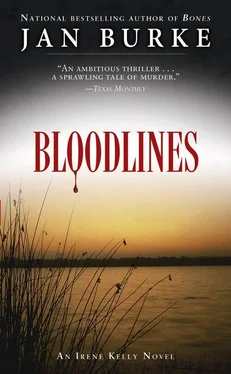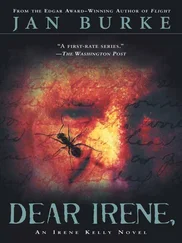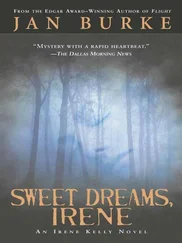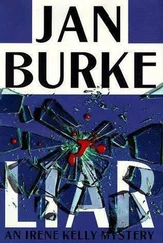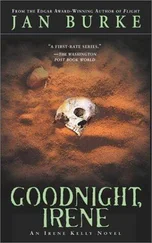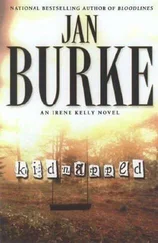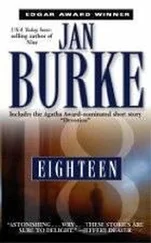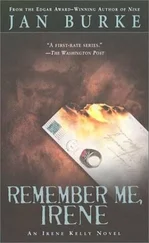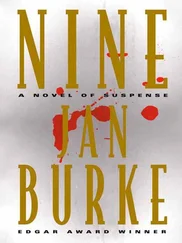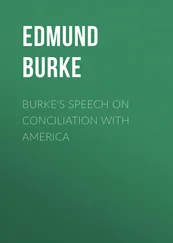“Not all of them,” Dan quickly amended.
“Who, then?”
“This is off the record-and not really official yet, anyway. Thelma and Barrett. Not exactly together. Her body washed up south of here. Clothing and jewelry told them who it was, because…well, you know how it is with floaters.”
O’Connor nodded.
“Barrett was in worse shape. Ruined the romantic stroll taken by the couple who discovered him.”
“But no sign of Todd or Katy?”
“No. Conn, we’re lucky to get two of them, and you know it.”
“You’ve told Warren?”
“Yes. He asked about Todd and Katy, too.”
“So you’re sure they drowned?”
“Nothing’s certain until the coroner does the autopsy-not even the identifications. But we really don’t have any reason to doubt that they drowned at this point.”
“Any word on the child?”
“Not a peep. Not a good sign.”
O’Connor looked down the hallway.
“Go on,” Dan said, “I’ll catch up with you later.”
O’Connor entered the room quietly. Jack was staring out the window. When Jack turned to him, he was surprised to see not grief, but a look of calm resolution on his face.
“Get out your notebook,” Jack ordered. “I’m going to give you a list of lowlifes. You’ve met most of them. I’ll tell you where you’re most likely to find the others. You’ve got to go looking for them tonight. By daylight, most of them will be back under their rocks.”
“Why?” O’Connor asked. “You think they might know who did this to you?”
“Who gives a rat’s ass about that? I want to narrow down the list of thugs who know how to sail.”
A S HE DROVE OUT OF THE HOSPITAL PARKING LOT, O’CONNOR SAW A beat-up old Ford leave as well. Before long, he was convinced the gray car was following him. The driver was a white male, but he couldn’t tell much more than that.
Instead of going home, he turned onto Pacific Coast Highway. At a light at the edge of downtown Las Piernas, a couple of hot rodders idled behind him, then peeled out as the signal changed, racing past the Nash. The Ford continued to follow at a distance. He considered losing his tail, then decided he’d rather learn who it was.
He drove to Gabriel’s, a bar near the beach, and took the only open spot at the curb in front of it. He walked in quickly, pausing at the doorway just long enough to see the Ford pulling into the bar’s small parking lot. On a Wednesday night, he knew, there was little chance the driver would find a parking space there.
Wednesday night was poetry night. The place would be packed.
Gabe, the owner and bartender, was doing his best to cater to the Beat Generation these days.
The interior was dark, save for a few candles on tables, and a spotlight on a small stage near the back-a young, bearded man dressed in black was reading poetry while someone else played a set of bongo drums. Layered within a haze of cigarette smoke, the air in the bar carried an odd mixture of other scents: strong coffee, spilled booze, and faux bohemians. There weren’t too many of the genuine articles in Las Piernas, O’Connor thought, at least not on a permanent basis. He wondered if poetry night at Gabriel’s might change that.
O’Connor saw Gabe, who nodded toward him.
O’Connor made his way toward the back door, where a redhead named Nancy, who had moved up in the world of Gabriel’s from cigarette girl to waitress, stepped into his path. She was drenched in Evening in Paris perfume. “What’s your hurry, Conn?” she asked in a whisper.
“I’ve got company coming,” he said softly, slipping her a five. “And I don’t want to disturb the poet. Delay my shadow a little, then let me back in?”
She sighed. “Don’t get hurt out there. You aren’t the first one to leave by this door tonight. Probably smoking reefers out there.”
He smiled. “We who are strictly squaresville have certain advantages over the cool.”
“You’re crazy. And I don’t mean that in a good way.”
He watched as a skinny man entered the bar. The man seemed familiar to O’Connor, but between the smoke and the poor lighting, he couldn’t make out his features. He seemed frail, not up to whatever job he had taken on. It made O’Connor feel more wary, not less-if the man wasn’t strong, he might be carrying a weapon to even the odds.
No use delaying, though, he thought.
When he was sure the man had seen him, he stepped outside and stood so that the door itself would hide his presence when it opened again. He was now in the alley behind the bar. There was a strange scent that he had smelled only a few times before, but recognized nonetheless-Nancy was right, someone was smoking marijuana nearby. He heard giggling and the sound of voices, then a young man knocked over a metal trash can as he and his girlfriend stumbled away. O’Connor ignored them, concentrating on the door. A single lightbulb burned beneath a green metal shade over the door-otherwise, the alley was in darkness. He had to stop the man as he came outside.
A moment later the door opened cautiously. He waited until the man had stepped into the alley, then tackled him from behind.
The man fell hard. An “umphh” of breath came out of him as he hit the ground. He lay so still that for a moment O’Connor wondered if he had been knocked unconscious. Pinning the man’s arms, he said, “If you wanted to see me, all you had to do was come by the newspaper.”
“No I couldn’t,” rasped a familiar voice.
“Ames?” O’Connor said, startled.
“Yes. For God’s sake, Conn, you’re crushing me. Get off.”
O’Connor stood and helped Ames Hart to his feet, apologizing as he brushed off Ames’s clothing. Hart stood on shaky legs, his hands on his thighs, trying to catch his breath in the way a runner might after a hard sprint. Thank God, O’Connor thought, that he hadn’t thrown a punch at him or hit him over the head or taken any of the other measures he had considered.
O’Connor hadn’t seen Ames Hart for some time. Known to the staff of the Express as Red Hart-though seldom to his face-Ames had covered the follow-up story of the little girl in the well, the legislation that required abandoned wells to be capped. That was less than ten years ago, but Hart looked as if he had aged thirty years since then.
Hart had been one of their best reporters, a muckraker who turned in one daring story after another-until Old Man Wrigley heard a rumor that Hart had once been a member of the Communist Party and asked Hart to deny it. Hart told Wrigley he had no right to ask the question, and Wrigley fired him, saying that when he had an answer-the correct answer-he could have a job.
Hart had remained stubbornly silent on the matter. Jack had argued with Wrigley on Hart’s behalf-and nearly lost his own job.
It wasn’t a good time to lose a job, but for Hart, matters got worse. He had been blacklisted. No other paper would touch him. He lost his home and barely managed to keep himself clothed and fed. Jack had become worried- not long before, a friend on one of the L.A. papers had committed suicide after being blacklisted. Jack eventually found a job for Hart with a small radio station in Los Angeles, where Ames worked off-air and under a different name. It required all Jack’s charm to talk Hart’s widowed sister into letting her “pinko” brother sleep in a spare room until he got back on his feet, but once Ames was under her roof, she became fiercely protective of him. Hart had managed to get a place of his own since then, but seeing the condition of his suit and the wear on his shoes, O’Connor thought he must still be struggling to get by.
“Why the hell were you following me?” O’Connor asked, his guilt making his tone abrupt.
Читать дальше
